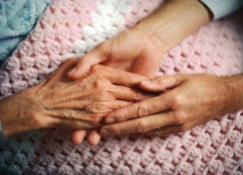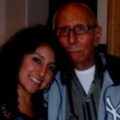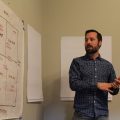
This is a guest post by Sharon Adams, executive director of ClinicNET and a CCMU board member. She works to ensure that Community-Funded Safety Net Clinics (CSNCs) and Rural Health Clinics (RHCs) throughout Colorado are acknowledged for their provision of high quality, affordable care to low income, uninsured, and underinsured Coloradans.
Have you ever advocated for the health care and wellbeing of a loved one? I believe most of us have, whether the experience is for a beloved animal companion or human being in our lives. The necessity is genuine and the impact on outcomes for patients and families is substantial.
Being a patient advocate and navigator began for me when I was only 20 years old. These words or labels were not the vocabulary of the time 37 years ago, but it was the work I did on behalf of my 50-year-old mother diagnosed with a deadly, malignant brain tumor and on behalf of my family, each of whom were immobilized by grief at the moment of diagnosis.
As a family, we needed information we could understand from a gifted neurosurgeon but unskilled communicator. That’s when the “energy of advocacy” for my mom and for our family kicked-in for me. The need to be clear about her condition and prognosis in a way that would allow me to know what to expect for her and from her – the need to help my grandparents, father, brother and extended family understand – was imperative.
Today I recognize this as a seminal time when I developed advocacy skills and entered the world of what we today refer to as patient advocacy, patient navigation, care management, and ultimately end-of-life care.
I’ve fine-tuned these skills many times over with family members, friends who are like family, my precious generations of dogs, and my remarkable horses.
These very personal experiences are exceedingly valuable in our lives as professionals in the health care industry. They keep us grounded; they inform and elevate our dialogue and decisions about making quality, affordable health care available to everyone.
I invite you to embrace these experiences. Allow them to enhance your professional work. Give yourself permission to blur the lines between the personal and professional. It is not a sign of weakness that you allow your personal life to affect your work, but a sign of strength that you understand its power to make you a better advocate.
Because of my experiences, I know I am better equipped for the work of ensuring that all Coloradans have health care and an opportunity for a healthy life – and I hope you are, too.




